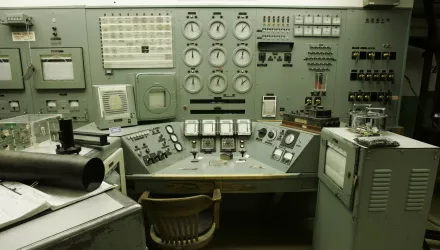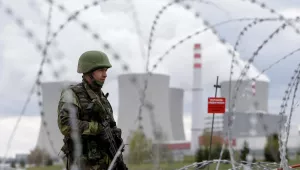HIGHLIGHT:
This week, an unofficial U.S. delegation may visit a North Korean nuclear plant suspected of producing nuclear weapons.
BODY:
SOPHIA CHOI, CNN ANCHOR: This week, an unofficial U.S. delegation may visit a North Korean nuclear plant suspected of producing nuclear weapons. Meantime, "The New York Times" is reporting that trails from North Korea's rogue nuclear program led to a research lab in Pakistan. Jim Walsh is an international security expert at Harvard's Bellfer Center for Science and International Affairs and he's in our Boston Bureau. Jim, nice to see you again.
JIM WALSH, HARVARD: Good to see you, Sophia.
CHOI: So, why would the North let this private group of congressional aides and scientists into its nuclear weapons plant?
WALSH: Well, it's a good question. It's really part of a broader process. Some time ago, a group from North Korea came and visited the United States, engaged in discussions with academics down in Athens, Georgia.
Recently, the ambassador to the U.N. from North Korea met with us here at Harvard and talked about the nuclear issue. And now we have other delegations from the Congress and this group from California who are visiting. And I think it's an attempt by North Korea to engage, to send signals they are open to negotiation. They want to see what the possibilities are.
CHOI: So this could help the 6 nation talks go forward. But on the other hand, could this visit harm diplomacy, the sensitive diplomacy at stake between North Korea and the U.S.?
WALSH: I really don't see any possibility that this could have a negative impact on the six-party talks scheduled or hoped to be rescheduled to start early sometime this year, hopefully January or February.
I think this can only help. Why? These are countries, particularly the United States and North Korea, who do not know how much about each other. We don't have embassies in either country. We don't have regular conversations with officials, with a variety of different positions in either government.
So the more they can learn about us and the more we can learn about them, and understand their positions, the less likely one of us is going to make a mistake as we deal with this nuclear issue.
CHOI: The U.S., Japan and South Korea are planning to demand that the North get rid of all of its nuclear programs including those used for power at the the next talks. Is that realistic?
WALSH: Well, Sophia, it was interesting, when we had the North Koreans here in Cambridge at Harvard and we were talking about the possibilities, it was clear that the North Korean position was they accept the notion of rolling back the military nuclear program in a way that is irreversible and verifiable. That's what the Bush administration has been demanding.
Their response, however, is that they want American promises to be equally verifiable and equally irreversible. And so if the U.S. says we're not going to attack you, they want to have as much confidence that that's true as we have confidence that their nuclear program is frozen and rolled back.
So I do think there's a basis for negotiation here, but long time players in North Korea know not to get excited about any particular event. This is a zig and zag relationship and just when it looks good, something bad can happen. So, it's promising but don't get too excited.
CHOI: Yes, Kim Jong-Il has been described as a madman at times. What kind of negotiator is he? What do we know about his negotiating skills?
WALSH: I think it's a mistake to label him a madman. When we're dealing in international politics with issues of national interest, national security, economic prosperity, it's better to look at a country's geopolitical position, not to see whether the leader is crazy or not.
It seems to me that the North Koreans have been pretty shrewd on occasion, not so shrewd on other occasions, but it's clear the people doing the negotiating, not the great leader, Kim, but people in ministries that are participating in these talks, have something they want. They want to feel secure. They're afraid the U.S. is going attack them and they have a country that's starving.
So, they have real interests they want to deal with. The U.S. has real interests. We want to see the nuclear program rolled back. The question is whether the parties trust each other enough to find a middle and come to a resolution.
CHOI: We shall see if that is an olive branch for more negotiations to go forward. Thank you so much, Jim. Always good to see you. Have a good one.
WALSH: Thank you. You too. Take care, Sophia.
Walsh, James. “Unofficial U.S. Delegation To Visit North Korea.” United States Senate,




